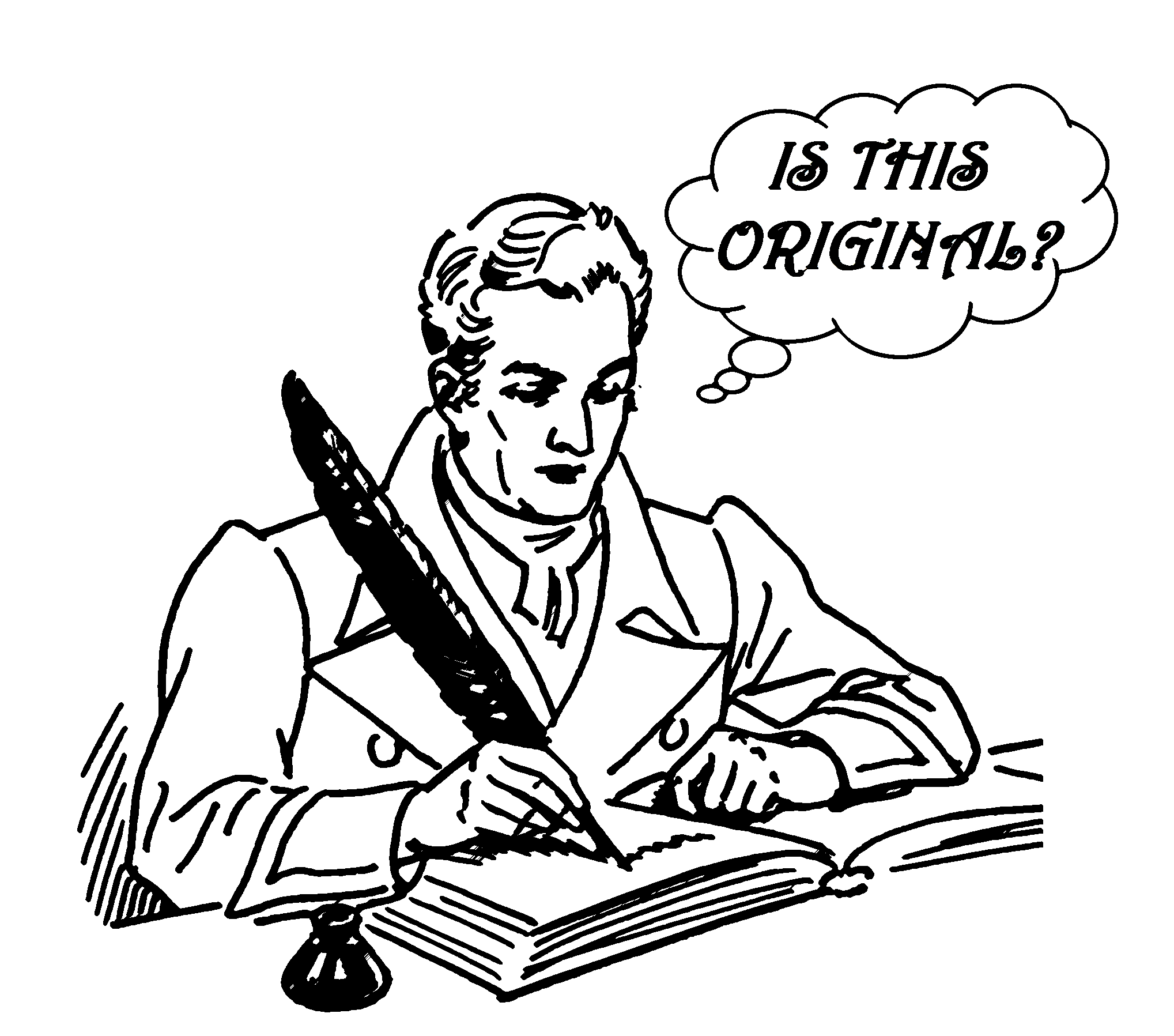 A friend once told me that they had an idea for a book that they wanted to write. When I asked why they weren’t writing it, they listed a number of excuses, but one stuck out to me in particular. They wanted their idea to be completely new and original, and they didn’t want to write something that wasn’t. Now I was puzzled by this, the idea of creating a completely original story is something that I think many authors would love to and dream about achieving, but I don’t feel that this is a realistic possibility. There have been many books that I have loved and I have commented that I think they are unique and original, but I’m referring to certain qualities, ideas, concepts, and maybe certain characters in that book that I’ve never come across before, but that doesn’t mean that they or the rest of the book are in fact completely original. To produce a totally original story you would have to reinvent everything and every single concept that humans have ever thought about.
A friend once told me that they had an idea for a book that they wanted to write. When I asked why they weren’t writing it, they listed a number of excuses, but one stuck out to me in particular. They wanted their idea to be completely new and original, and they didn’t want to write something that wasn’t. Now I was puzzled by this, the idea of creating a completely original story is something that I think many authors would love to and dream about achieving, but I don’t feel that this is a realistic possibility. There have been many books that I have loved and I have commented that I think they are unique and original, but I’m referring to certain qualities, ideas, concepts, and maybe certain characters in that book that I’ve never come across before, but that doesn’t mean that they or the rest of the book are in fact completely original. To produce a totally original story you would have to reinvent everything and every single concept that humans have ever thought about.
Amongst a number of other books, I’ve recently been reading ‘The Magical Worlds Of The Lord Of The Rings’ by David Colbert. I spotted it in the second hand bookshop that I’ve been working in and realised that it was about Tolkien himself, how he wrote LOTR, and where Tolkien’s ideas for his epic fantasy originated from. As a new author this fascinated me, I am deeply interested in how authors come up with their ideas and what inspires them to write, so I just had to have this book. The book itself is probably aimed at teenagers but it is suitable for adults too, it’s easy to understand, the text is relatively large and there are pictures dotted throughout. As a LOTR fan myself, I think all fans would love this book.
Within the first few chapters of Colbert’s book he explains that the epic Anglo-Saxon poem ‘Beowulf’ inspired many important characters, scenes, landscapes and buildings found throughout LOTR. Tolkien happened to be one of the world’s experts in Anglo-Saxon, Frodo’s name appears in the poem and other names were drawn from other Anglo-Saxon words. This wasn’t the only interesting thing that I discovered upon turning the pages though; many events throughout Tolkien’s life (tragic events too) influenced his characters and Middle Earth. Tolkien drew upon Egyptian gods and goddesses, resented Shakespeare’s idea of ‘little’ Elves, and delved deep into Norse mythology. Finnish became the strongest influence on all of the languages which Tolkien invented, though many more languages influenced Tolkien’s work too, and he even invented runic alphabets.
Just like Tolkien, many authors draw upon ancient history, knowledge, past stories and life experiences to create their own stories. As I’ve mentioned previously, many strong links can be found between Shakespeare’s Romeo and Juliet and Isaac Marion’s Warm Bodies. Walt Disney reimagined the Grimm Brother’s dark fairy tales. George R. R. Martin drew upon the War of the Roses and the Tudors I believe when creating Game Of Thrones. Dan Brown commonly uses religious ideas, beliefs and ancient groups within his novels. Stephanie Meyer based the Twilight Series around a particularly vivid dream she had, and although erotic fantasy isn’t really my thing, 50 Shades Of Grey was actually created from an erotic Twilight fanfiction. Yes these are wildly different authors and I wouldn’t vouch for all their literacy and writing prowess, but all have been successful to lesser or greater extents.
The point is, most ideas and stories have been written already, most characters; even reinvented characters share similarities with other characters. Even if you came up with what you thought was a totally original and unique idea, you would probably find that someone, somewhere would be able to point out that your idea shares similarities with something that has already been done before. Don’t let this put you off though, when writing a story you shouldn’t let yourself get hung up on the idea of ‘originality’ or ‘uniqueness’. It is better to just write what you feel like writing and write about your interests, only you can write the story that you can write, and it may just turn out to be different enough to spark intrigue, or part of a new growing trend, or popular in its own right. Obviously you can’t copy someone’s idea entirely word for word and state that it’s your own work, that would be plagiarism. However, don’t be frightened to draw inspiration from the world and history around you. That being said, I think I shall leave this blog here for now and go back to encouraging my friend to write their book.
‘Original minds are not distinguished by being the first to see a new thing, but instead by seeing the old, familiar thing that is over-looked as something new.’ – Friedrich Nietzsche